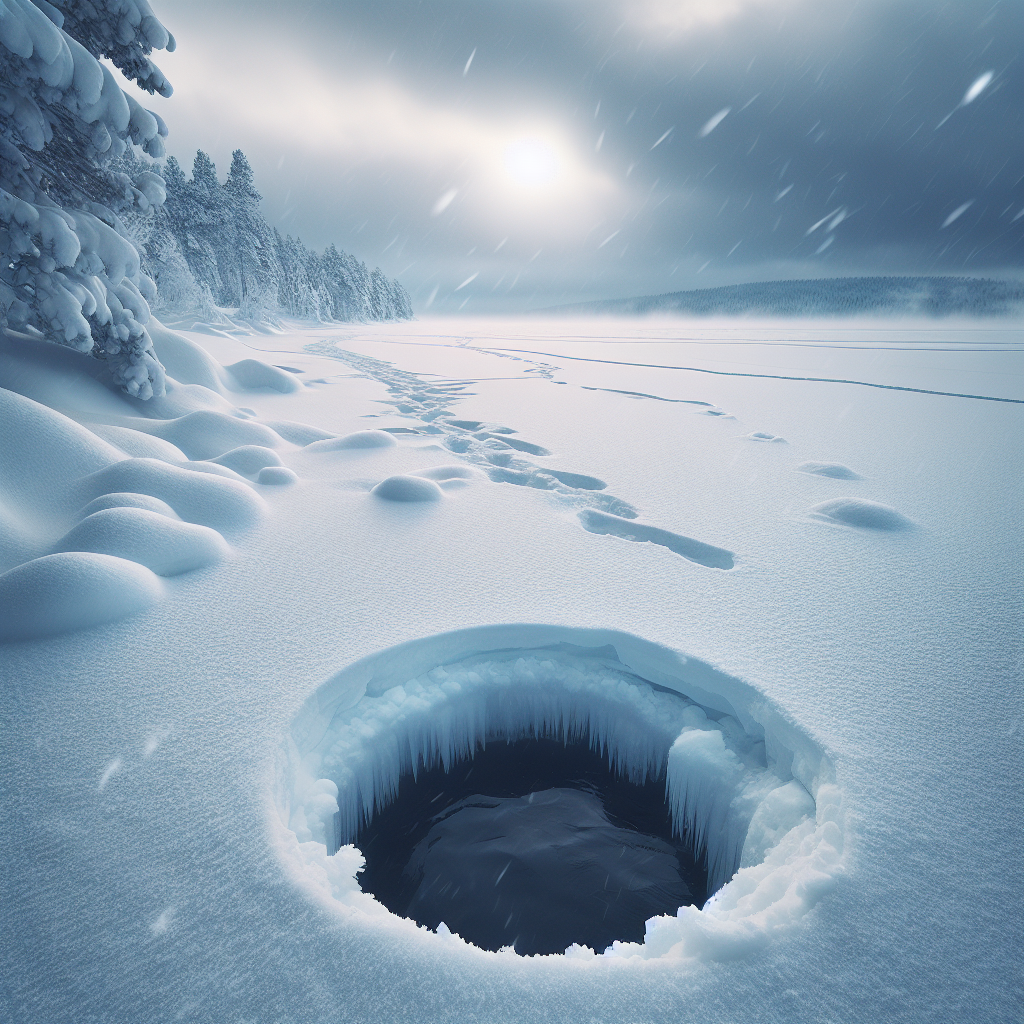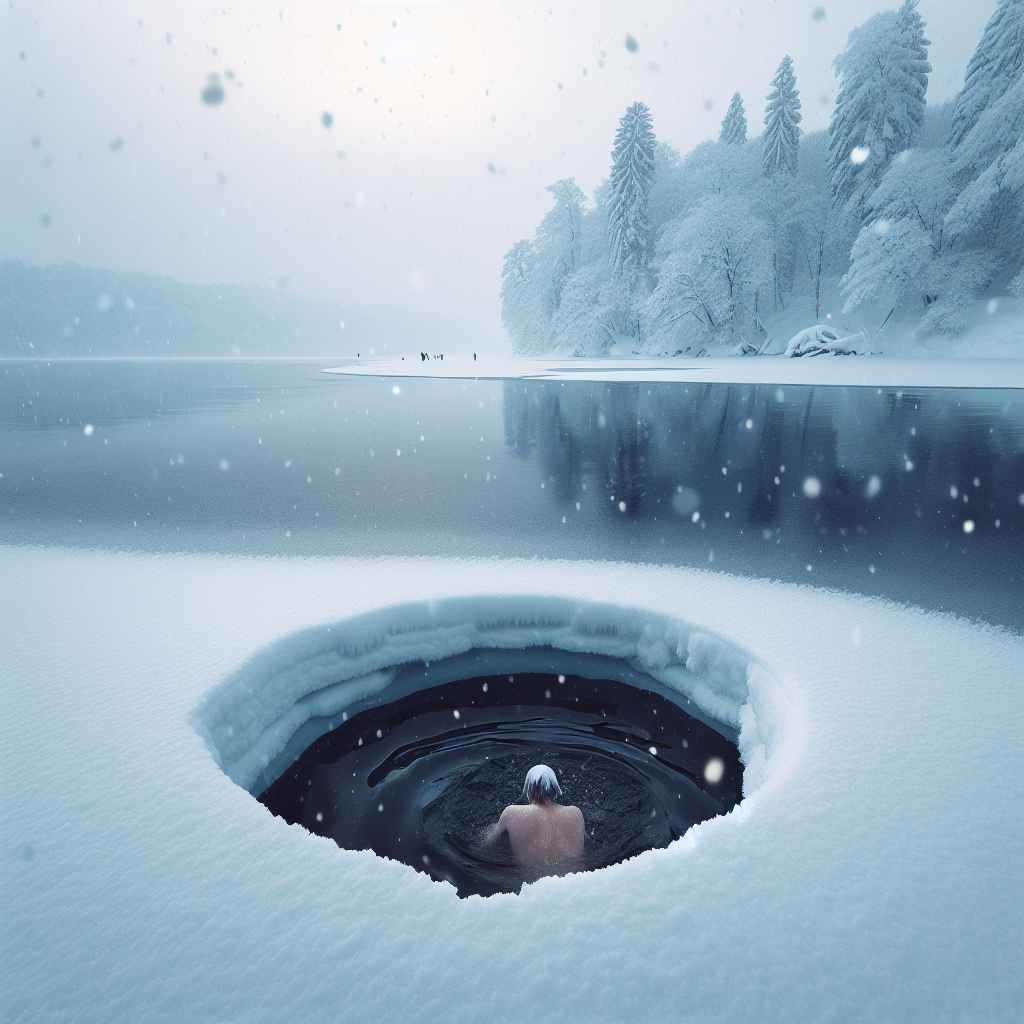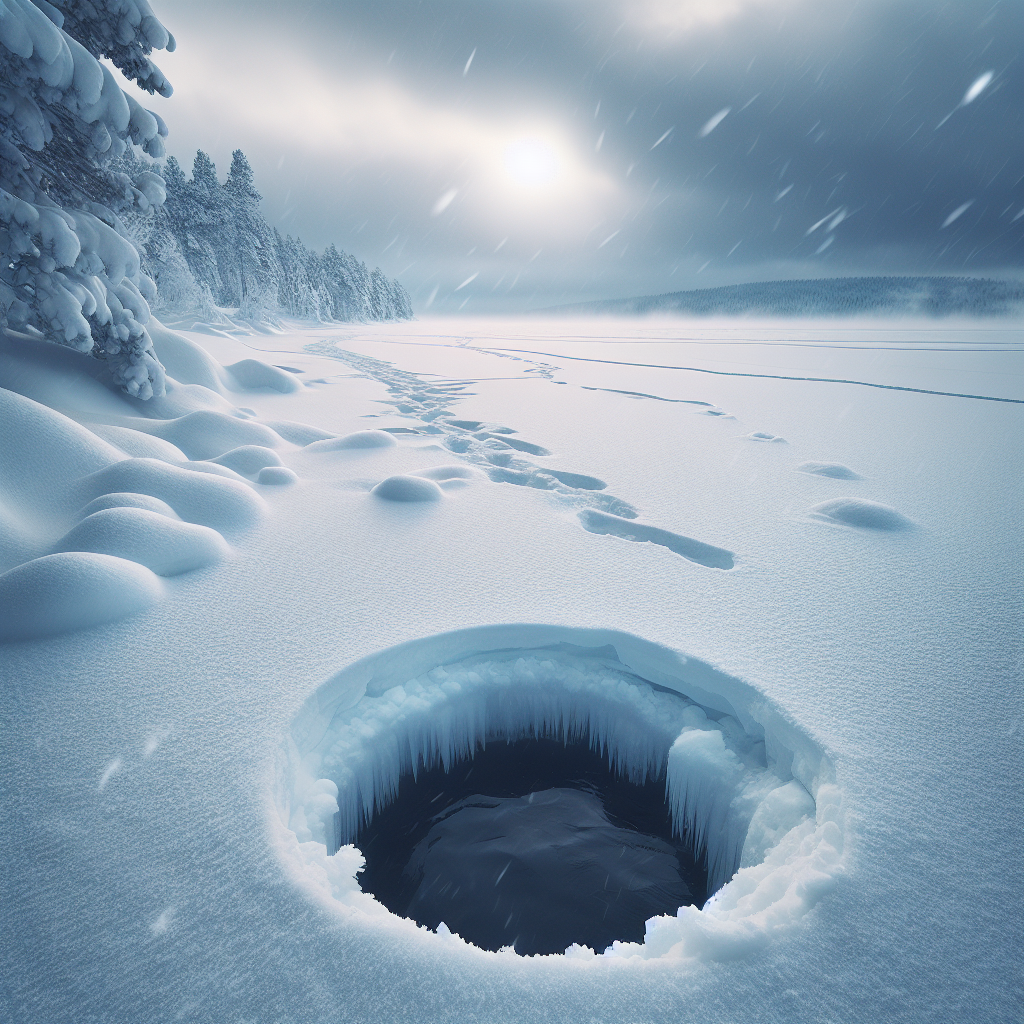Imagine yourself standing on the edge of a pool or lake, surrounded by a serene snowscape. The air is crisp, the atmosphere is quiet, and you’re preparing to become a true winter warrior by stepping into the freezing water for an invigorating cold plunge. In “Winter Warriors: Tips for Outdoor Cold Plunging in Snowy Climates,” you’ll find a comprehensive guide to embracing and safely exploring this bold, chilly activity. Brace yourself, warrior, as it feels like a thrilling rollercoaster ride for your senses and could potentially offer numerous health benefits!

Choosing the Right Location
Choosing the right location is one of the most important steps when preparing for a cold plunge. It sets the tone for your entire experience, so it’s crucial to make a wise and safe decision.
Consider water temperature
When plunging in snowy climates, you want to ensure that the water temperature is not too cold. While you are seeking a chilling experience, a body of water that is too cold may put your body at risk of hypothermia or shock. Therefore, consider the water’s temperature before deciding to plunge into it.
Look for a safe and accessible spot
In addition to considering water temperature, it’s imperative that the location you choose is safe and easily accessible. You don’t want to risk injuring yourself while trying to get to your chosen spot. Look around for any signs of danger and ensure there is a clear, safe pathway to and from the water.
Avoid areas with strong currents or undertows
Finally, in choosing the right location, avoid places with strong currents or undertows. These areas are considerably more dangerous, as the strong water flow can easily carry you away or pull you under. It’s always better to prioritize safety over an adventure.
Preparing for the Plunge
Once you’ve chosen the perfect location, it’s time to prepare for the refreshing plunge into the chilly water. By properly preparing, you ensure that your cold plunge is as enjoyable and safe as possible.
Warm up your body beforehand
Before stepping into the cold water, it’s crucial to warm up your body. Doing some quick exercises like jogging or jumping jacks can help increase your body temperature, better preparing it for the icy plunge ahead.
Wear appropriate clothing and gear
Dressing appropriately is another key aspect of preparation. wear a swimsuit that you are comfortable in. Additionally, you should consider using a swim cap and neoprene booties to help protect your body from the cold.
Bring a towel and warm clothing for after
Remember to pack a towel and warm clothing for after your cold plunge. You’ll want to dry off and bundle up quickly to prevent your body temperature from dropping too low.
Entering the Water Safely
You’ve selected your location and prepared for your plunge. Now, it’s time to safely enter the water.
Take slow and gradual steps
When entering the water, always take slow, gradual steps. This approach allows your body to gradually adjust to the change in temperature and significantly lowers the risk of shock.
Enter the water with caution
As you enter the water, do so with caution. You don’t want to slip or fall, so take care and pay attention to your surroundings.
Keep an eye out for hazards such as ice or debris
One final tip before plunging is to keep an eye out for hazards such as ice or debris. Both can be extremely dangerous. Be mindful of your surroundings, always stay vigilant, and prioritize safety above all else.

Managing the Cold
Getting into the cold water can be quite a shock to the system. Here’s how to manage the cold effectively.
Control your breathing
Deep, controlled breathing is vital while in the water. It helps your body adjust to the cold temperature and increases the amount of oxygen available to your muscles.
Relax and embrace the cold
It may sound counterintuitive, but try to relax and embrace the cold. This mindset can actually help your body adapt more quickly and ensure that your experience is not just tolerable, but enjoyable.
Enjoy the natural endorphin rush
With its ability to boost endorphin levels, cold plunging can give you a natural high, leaving you feeling invigorated and full of life. Don’t forget to embrace and enjoy this natural rush.
Staying Safe in the Cold
Above all, your safety is critical. It’s essential to know how to keep safe while enjoying your cold plunge.
Be aware of hypothermia symptoms
Hypothermia is a genuine risk when cold plunging, especially in snowy climates. Therefore, it’s crucial to know the symptoms, such as shivering, weak pulse, or dizziness, to take immediate action if necessary.
Don’t stay in the water too long
Overexposure to cold can be harmful, so make sure not to stay in the water too long. It’s advisable to start with short plunges and gradually extend your time in the water as you build up your tolerance.
Avoid cold plunging alone
For safety reasons, try never to plunge alone. Having a companion with you means they can keep an eye on you, ensure you’re safe, and help in case of any emergencies.
Exploring Different Techniques
As you become more comfortable with cold plunging, it can be beneficial to explore different techniques and approaches to make the experience even more rewarding.
Try the Wim Hof Method
The Wim Hof Method, which combines cold exposure with breathing techniques and meditation, has been praised for its physical and mental health benefits. It could be a beneficial technique to explore.
Experiment with cold water immersion
Another technique you can try is full-body immersion. While not suitable for beginners, it can be a great way to intensify your experience once you’re accustomed to the cold.
Combine cold plunging with other activities
For a truly holistic experience, consider combining your cold plunge with other activities such as yoga, meditation, or light exercise. This not only increases the enjoyment factor but can further amplify the health benefits.
Post-Plunging Recovery
After plunging, it’s essential to allow your body to recover properly.
Warm up gradually
Bring your body temperature back up gradually by dressing warmly and sipping on a hot beverage. This minimizes the risk of after-drop – a dangerous situation where your body temperature continues to fall after you’ve exited the water.
Stay hydrated and nourished
Along with warming your body up, make sure to stay hydrated and nourished. Replenishing your body with fluids and nutrients can aid in the recovery process.
Consider post-plunge activities like saunas or hot baths
Post-plunge, consider participating in activities such as saunas or hot baths. These can help relax your muscles, stimulate circulation, and further promote recovery.
Building Winter Resilience
As you continue your cold plunging practice, you’ll build considerable winter resilience.
Start with shorter plunges and gradually increase
Building resilience means gradually pushing your comfort zone. Start with shorter, less chilly plunges and slowly increase the time and coldness as your body adapts.
Practice proper body and mind conditioning
Alongside physical adaptation, mental conditioning is also crucial in building resilience. By developing a strong, positive mindset, you’ll be better equipped to handle the physical challenges posed by cold plunges.
Find a supportive community or group
Becoming a part of a community or finding a support group can greatly help in building resilience. They provide safety, motivation, and camaraderie, making your journey toward becoming a winter warrior significantly more enjoyable.
Benefits of Cold Plunging
Cold plunging brings several benefits – both mentally and physically.
Boosts immune system function
One notable benefit of cold plunging is how it can boost immune system function. For those who regularly practice cold plunging, they often experience fewer colds, flus, and infections.
Improves circulation and blood flow
Another benefit that cold plunging offers is improved circulation and blood flow. This is because the cold temperatures cause blood vessels to constrict and dilate, which, in turn, can improve cardiovascular health.
Enhances mental clarity and focus
Cold plunging has also been shown to enhance mental clarity and focus. The shock of the cold, followed by the warm recovery phase, can significantly stimulate the brain, resulting in improved mental sharpness and enhanced mood.
Conclusion
Cold plunging in snowy climates can be invigorating, rewarding, and beneficial for both mental and physical health. With proper precautions, techniques, and mindset, it can transform you into a genuine winter warrior. Be aware of the challenges, but don’t let them stop you. Instead, embrace them as part of the journey. With every plunge, you not only brave the bitter cold but also the personal limitations that may have held you back. So, take the plunge. Embrace the winter warrior within you. As the saying goes, fortune favors the bold.
